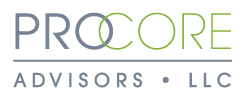
Families Dealing with Addiction: A Roadmap to Stability and Support
Dealing with addiction within a family can have a profound impact on various aspects of life, including finances. It is crucial for families to not only provide support and care for their loved ones struggling with addiction but also to navigate the financial challenges that may arise. In this article, we will explore effective strategies for financial planning to help families facing addiction maintain stability, protect their financial well-being, and facilitate their loved ones’ recovery journey.
The first step in financial planning for families dealing with addiction is to assess the current financial landscape. Some families may have the resources to afford the top care, though others may end up putting their own financial welfare at risk.
Developing a realistic budget is essential for managing finances effectively during challenging times. Identify essential expenses, such as housing, food, utilities, and healthcare, and allocate funds accordingly. Minimize discretionary spending and non-essential expenses to free up resources that can be redirected towards treatment and recovery support.
Boundaries play an important role in every area of your life, especially in your finances. While it may be tempting to protect your loved one from consequences, enabling their addiction can hinder their recovery. This includes providing financial support for destructive behaviors or covering them financially for their actions. You should not let the situation play on your sympathies, or influence your financial decisions.
Allocating resources towards treatment and recovery should be a top priority. Evaluate the available treatment options, considering factors such as effectiveness, affordability, and support services. Explore health insurance coverage, employee assistance programs, and community resources that may assist in covering the costs of treatment.
Dealing with addiction can be emotionally and financially draining. It is essential to prioritize self-care including financial well-being for yourself. Joining support groups or seeking therapy can provide a safe space to address your own emotions, gain insights, and connect with others going through similar experiences.
Enhancing your knowledge about addiction and the recovery process can empower you to make informed decisions. This knowledge will enable you to advocate effectively for your loved one and make educated decisions regarding financial planning. Engaging the services of a financial advisor who specializes in working with families facing addiction can be immensely valuable in providing financial guidance. Additionally, they can offer objective insights and support during challenging financial decisions
Financial planning for families dealing with addiction requires a multifaceted approach that addresses both the emotional and financial aspects of the situation. By assessing the current financial situation, creating a realistic budget, seeking professional help, prioritizing treatment and recovery, setting boundaries, and prioritizing self-care, families can navigate the challenges associated with addiction while safeguarding their financial stability. Remember, support and empathy are crucial during this challenging journey, both for the individual struggling with addiction and for the family members providing love, care, and financial support.



